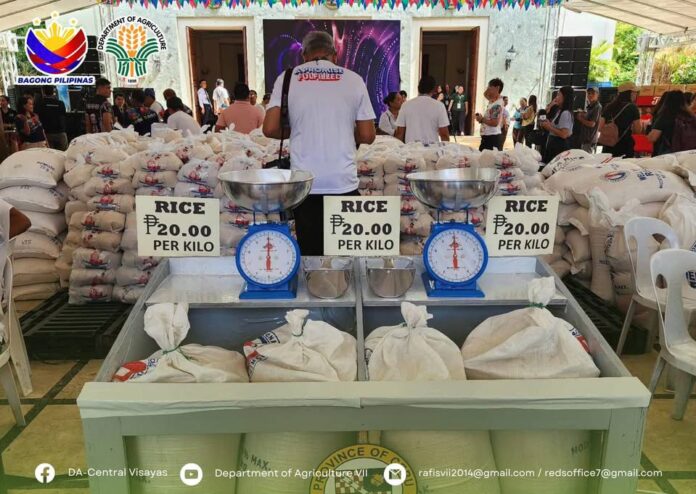CEBU CITY—Agriculture Secretary Francisco P. Tiu Laurel Jr. formally launched the administration’s flagship Katuparan ng Pangakong P20 na Bigas (KnP20) program in Cebu on Thursday, aligning with Labor Day celebrations and marking a key milestone in the Marcos administration food subsidy agenda.
The initiative fulfills a high-profile campaign promise by President Ferdinand R. Marcos Jr. to lower rice prices to ₱20 per kilo. “Today, Labor Day, we fulfilled a promise made three years ago… That promise is now a reality—Benteng Bigas Meron Na!” Tiu Laurel said during the rollout event at the Cebu Capitol grounds.
The program, which sells rice at a highly subsidized rate, aims to support vulnerable sectors and address food insecurity while managing supply-chain efficiencies. Under the KnP20 framework, rice is distributed through the KADIWA ng Pangulo (KnP) system, bypassing restrictions that prevent the National Food Authority (NFA) from selling directly to the public. Eligible recipients—including 4Ps beneficiaries, senior citizens, solo parents, and PWDs—can buy up to 30 kilos per month.
In Cebu, the rollout is being jointly subsidized by Food Terminal Inc. (FTI) and the Provincial Government under a memorandum of agreement signed during the launch. The pilot will run through December, covering additional regions in the Visayas and targeting 800,000 low-income households—or roughly 4 million individuals.
Local government units have already begun drawing rice stocks from the NFA’s Cebu warehouse, with 3,700 50-kilo bags withdrawn between April 29 and May 1. The NFA is actively repositioning stocks from surplus-producing regions such as Mindoro to bolster supply in low-output areas like Cebu.
President Marcos has directed the Department of Agriculture (DA) to design a framework to extend the KnP20 program until 2028 and expand it nationwide. The move signals the administration’s intent to institutionalize food affordability as a cornerstone of its economic policy, particularly amid inflationary pressures and agricultural supply concerns.
Agriculture assistant secretary Genevieve Velicaria-Guevarra confirmed that the program’s initial Metro Manila rollout includes 16 key locations such as Kamuning Market, Bagong Silang, and DA Central Office sites. Additional distribution centers have also been established in coordination with other agencies, including the Philippine National Police and the Philippine Postal Corp.
The DA is currently seeking guidance from the Commission on Elections (Comelec) regarding whether the KnP20 program is exempt from the May 2–12 aid distribution ban ahead of the midterm elections. Tiu Laurel voiced confidence that the exemption would be granted, stressing both the urgency of providing relief to struggling families and the logistical need to clear NFA warehouses to make room for the summer harvest.
“If we don’t move this rice, we won’t be able to buy new palay from local farmers,” Tiu Laurel said, highlighting the program’s role in stimulating domestic agricultural procurement.
As the government pushes forward with this ambitious food subsidy plan, analysts will closely watch its fiscal implications, sustainability, and impact on local producers amid rising global commodity pressures.







